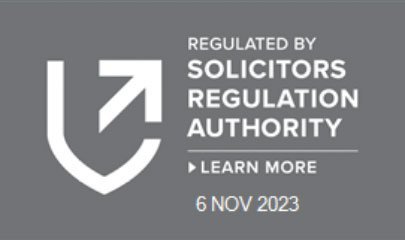Where does that leave people who want to reach a swift conclusion?
It is not surprising that our clients are increasingly looking for alternative methods to resolve issues that are already before the court or about to commence. Whether the dispute relates to financial matters, property or arrangements concerning children, arbitration is an option that we are increasingly suggesting.
What is family arbitration all about?
Arbitration is a formal process that involves an impartial adjudicator who resolves the dispute in a private tribunal. It is a process that can be used to resolve single issues as well as fully contested matters.
How does it work?
Arbitration is a voluntary process and both parties must agree to use arbitration to settle the issue(s) between them.
You can choose which arbitrator you wish to use based on their areas of expertise. If you are unable to agree, there is a process available which will enable an arbitrator to be appointed for you.
During arbitration you present your case to the arbitrator who will make a decision that is final and legally binding. A solicitor can advise about the process of arbitration and whether your dispute is suitable.
Is Arbitration suitable for child related issues?
Yes, providing there are no safeguarding issues. Since July 2016, arbitration has been available for children issues such as:
- where a child should live;
- contact arrangements;
- educational or religious issues;
- disagreements over a child’s routine or non life threatening treatment;
- disagreement over a holiday abroad;
- relocation within England and Wales and some international relocation (depending on the destination country in question)
There are some issues that cannot be determined by an arbitrator such as:
- child abduction;
- where the disagreement relates to an application to return a child to England and Wales from another country;
- where there is a dispute over the administration of or management of life changing or life threatening treatment;
- where a party lacks mental capacity or is a minor.
What about financial disputes?
Yes, these too can be resolved through arbitration with the added benefit of being completely confidential. The process can be used whether you are/were married or living together.
What are the benefits of arbitration?
Arbitration is well suited to the ‘new norm’ of remote hearings via Zoom or Skype. Many arbitrators will be experienced solicitors or barristers who are all currently using remote platforms to attend hearings and represent their clients. Arbitration offers a wealth of benefits including:
- You choose the arbitrator
- Your arbitrator will hear the case from start to finish, ensuring consistency, which is often not possible in the court system
- You will not have to attend a congested court, where time is at a premium, and you will not be competing with other cases on your arbitration day. You can be assured that you will have the arbitrator’s whole attention
- It is private and the award (for financial issues) or determination (children issues) is never published, therefore confidentiality is guaranteed
- The decision of the arbitrator is binding (just like a court order) which gives both parties certainty
- The process is flexible and the parties can effectively decide upon the speed at which their case progresses
- You can choose where the arbitration will be heard. This can be at the arbitrator’s office or at a solicitor’s office. It offers a more relaxed experience for all parties
- In the long term, an early decision to arbitrate will enable both parties to avoid protracted and expensive court-based litigation
- If you both decide that an issue can be decided purely on paper, an arbitrator can consider the issue in hand and provide the award or determination in writing without seeing either of you in person
- You will receive the written award or determination from the arbitrator within 28 days, but often sooner. It is not uncommon to wait several weeks or sometimes months for a court to hand down judgment if it is not given on the day of the hearing itself.
It is also worth noting that you can apply to the court for an order to be made in the same or similar terms to the adjudicator’s award or determination, although this is not necessary.
What are the disadvantages?
As with all processes, what is considered an advantage by one person, may be a disadvantage to another. A key point to note is that because the decision is binding, there are limited grounds to appeal an award or determination if you are unhappy.
What about the costs of the process?
Arbitration is usually less costly than court litigation, but this does depend on certain variables such as the fees of the arbitrator, or arbitrators, and whether you represent yourself or attend with legal counsel.
It is normal to share the fees of the arbitrator equally, although the arbitrator does have some discretion to order one party to pay more if their conduct during the process has been extremely unreasonable.
Is it for you?
In uncertain times, it is well worth exploring the benefits that arbitration has to offer, particularly when a court-based approach can be littered with delay. Delay can increase legal costs and personal anxiety, which is unhealthy for anyone coping with family breakdown or trauma.
Legal Advice
We have highlighted arbitration as an effective alternative for those who would otherwise go to Court, but there are other Alternative Dispute Resolution (ADR) options available. If you wish to explore whether arbitration, or another method of ADR, may be helpful in your case please get in touch with us at Allard Bailey Family Law.
To book a virtual consultation or telephone appointment with one of our team, please call 020 7993 2936 or complete the Contact Form on this page.
































































